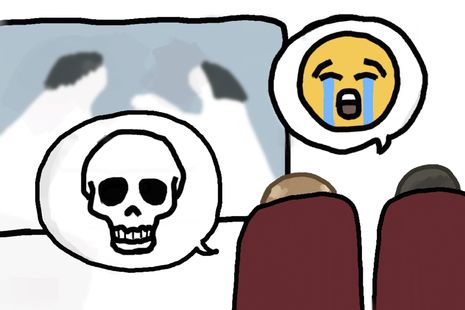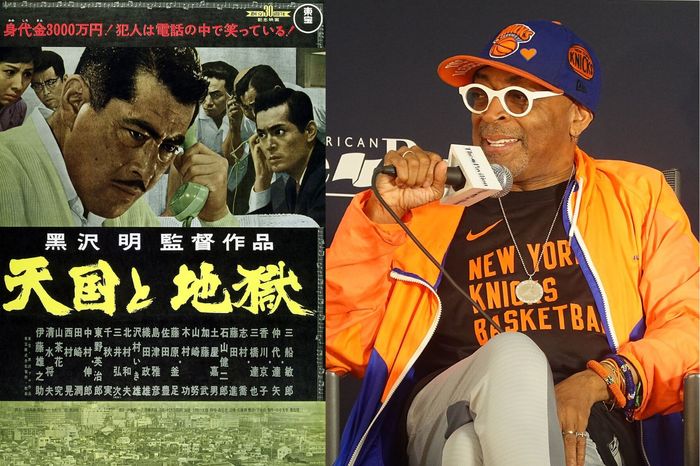Boo! It’s Woke!
Amanda Ljungberg examines the prestige directors turning their gaze on Gen Z politics, and why their satire is often landing with a thud

Many a Western film director has decided that now is the time to make their big self-indulgently this is what I think movie. Naturally, some of these directors have decided that as part of their grand career statement-pieces they must purge some of their frustrations against the impenetrable, incomprehensible mob that is the identity-politics-obsessed, hyper-online youth. Perhaps it is ironic that it is often these same people who comprise large parts of their fanbases – equally, perhaps it is intentional, a send-up in the name of good old-fashioned ‘proper’ debate, a real-time litmus test for those remaining serious thinkers. Ari Aster’s Eddington earlier this year found great amusement in mocking performative protest-speak; Paul Thomas Anderson’s recent One Battle After Another, for all its sensitivity in refusing to fully parody or martyr its extremist characters, took a similar pleasure in fashioning its ultra-diverse young characters as bemusing eccentrics. Even something as overstated as Adolesence (recall, if you will, the notion of a shared colour-coded emoji language) participated in this conversation, albeit with more of a parental concern than a condescending scoff. Now has been, effectively, a time of stopping, looking down the generational rift, and shaking your head with sagely, exasperated detachment. These films are the tutting observations of those who suspect the problem became unmanageable long before they thought to ‘intervene’, and who now regard it with a wry, helpless amusement. Just look at the absurdity we’ve stumbled into.
Given the fraughtness of our cultural present, it is only natural that our artists are wanting to make ‘the movie of the moment’, to capture this specific malaise before it shifts, or becomes too hostile even to parody. As the sociopolitical winds seem to be blowing the wrong way for a lot of these directors, one gets the impression not so much that these are attempts to throw out right-friendly liferafts – One Battle After Another, which the ever-astute Bret Easton Ellis has called a “musty relic of the post-Kamala Harris era,” is certainly not winning conservative favour – but claims to the enviably cool, blasé persona of the dirtbag-left free-speech martyr, the post-woke intellectual too principled, too big-picture to keep indulging SJW etiquette. Satirising wokeness is the fashionable signal of post-earnesty, a knowing eye-roll (look at how precious we were!), a feature of the sliding political pendulum just as the reintroduction of slurs and everyone trying to be Adam Friedland are. But a few directors seem to have jumped the gun.
“Claims to the enviably cool, blasé persona of the dirtbag-left free-speech martyr, the post-woke intellectual too principled, too big-picture to keep indulging SJW etiquette”
This brings us to Luca Guadagnino’s After The Hunt. Ayo Edibiri’s Maggie is a student accusing Hank, a Yale academic played by Andrew Garfield, of assault. Julia Roberts is philosophy professor Alma, given the central dilemma of who to believe. The words “resentment” and “bitterness” have been thrown around to diagnose Guadagnino’s vision, to fit it along the cultural trajectory of #MeToo. It is a tired point that depiction is not endorsement, but this is an undeniably sensitive topic that many are not ready for a contrarian angle on. If there was ever a forewarning, it might have been the creeping online sourness against Guadagnino’s Call Me By Your Name, but one would have thought he had secured enough goodwill and legitimacy with 2024’s Challengers. No such luck?
Guadagnino is not a secret reactionary, nor has he ever come across as a particularly astute provocateur – it seems he has simply stepped into a post-woke mode without the fanbase or solid film to support it. Perhaps no one told him that he has been under reevaluation ever since Call Me By Your Name crossed the threshold into the ultra-mainstream. Remember that Call Me By Your Name becoming “problematic” online was only peripherally about “safeguarding young boys from grooming”; young viewers will always romanticise irresponsibly, and, in truth, the film is explicitly cautionary. However the word “problematic” functions in the same lazy, conversation-ending way that ‘woke’ does. With the young viewership Guadagnino has accrued, made ever-younger, ever-online-r by his casting choices, he cannot hope to escape the preconceptions which complicate his repositioning as, bizarrely, a Woody Allen type.
This is a film about cancel culture, which is one of those terms which threatens at its very invocation to disrupt your integrity and interpretive control. There is no universal angle on something structurally polarising. It does not particularly matter, then, if After The Hunt is ‘woke’ or ‘anti-woke’; it does not matter that Guadagnino says his film “wants you to think that it’s better to talk to one another and to listen to one another”. The online reception has already spun beyond that, and so long as filmgoers get their analytical points and model their ticket-purchasing habits on sources like Letterboxd and X, After The Hunt shall remain now and forevermore “anti-woke propaganda”.
“But for so many directors to be turning to ironic, jargon-heavy social commentaries speaks to a more worrying impatience at current and future generations of filmgoers”
This film will go down quietly and be looked back on, if at all, as trite and unsatisfactory. Lacking as it does the substance for real debate, progressive spaces are nevertheless not having the nuanced conversations which turn such failures into anything more than temporary punching bags. It is a deliciously easy thing to shut a project down on the merit of its provocation being “unearned”; we cannot have sustainable debates indexed by who speaks rather than what is being said, which is, ironically, partially what Guadagnino is saying.
Is it overly pessimistic to blame the echo chamber? We so frequently gesture at the black hole of groupthink and lament that we cannot possibly look into it for a meaningful solution. One solution would, of course, require the suppression of knee-jerk reactions to words like ‘cancelled’ or ‘triggered’. But for so many directors to be turning to ironic, jargon-heavy social commentaries speaks to a more worrying impatience at current and future generations of filmgoers.
Regardless of intention – and I don’t doubt that Guadagnino was aiming primarily at virtue-signallers – why are so many films wanting to sneer and smirk? Surely we have exhausted the fun that’s to be had in pointing out liberal overreach. The ‘point’ of film is not to enlist anyone in a political ‘fight’, but if there must be some ‘point’, which is to say some social significance attributed to the continued study of film as a legitimate intellectual form, surely now, when so much of the artistically-engaged youth is distracted by online imperatives for one-line takeaways, is the time for nuance, to encourage rather than slam a door.
These ‘brave’ directors are often creating good films with important lines of argument and valuable ideas on where non-conservative audiences might go from here. But as of late there has been a lot of hamfistedness, a lot of blaming of social agendas which have been naturally dying on their own and are now being bludgeoned by conservative outlets which thrive on having weak Others at their disposal. Films do not need to be ‘easy’ or even inoffensive. It just doesn’t seem like everyone is on the same page regarding the urgency not of another dogmatic exaltation of ‘rationality’, but of a way to stop finding so much horror in a generational gap that must be salvaged rather than wedged further apart.
 News / Cambridge academics sign open letter criticising research funding changes22 February 2026
News / Cambridge academics sign open letter criticising research funding changes22 February 2026 News / University Council rescinds University Centre membership20 February 2026
News / University Council rescinds University Centre membership20 February 2026 News / Supporters protest potential vet school closure22 February 2026
News / Supporters protest potential vet school closure22 February 2026 News / Hundreds of Cambridge academics demand vote on fate of vet course20 February 2026
News / Hundreds of Cambridge academics demand vote on fate of vet course20 February 2026 Comment / A tongue-in-cheek petition for gowned exams at Cambridge 21 February 2026
Comment / A tongue-in-cheek petition for gowned exams at Cambridge 21 February 2026








